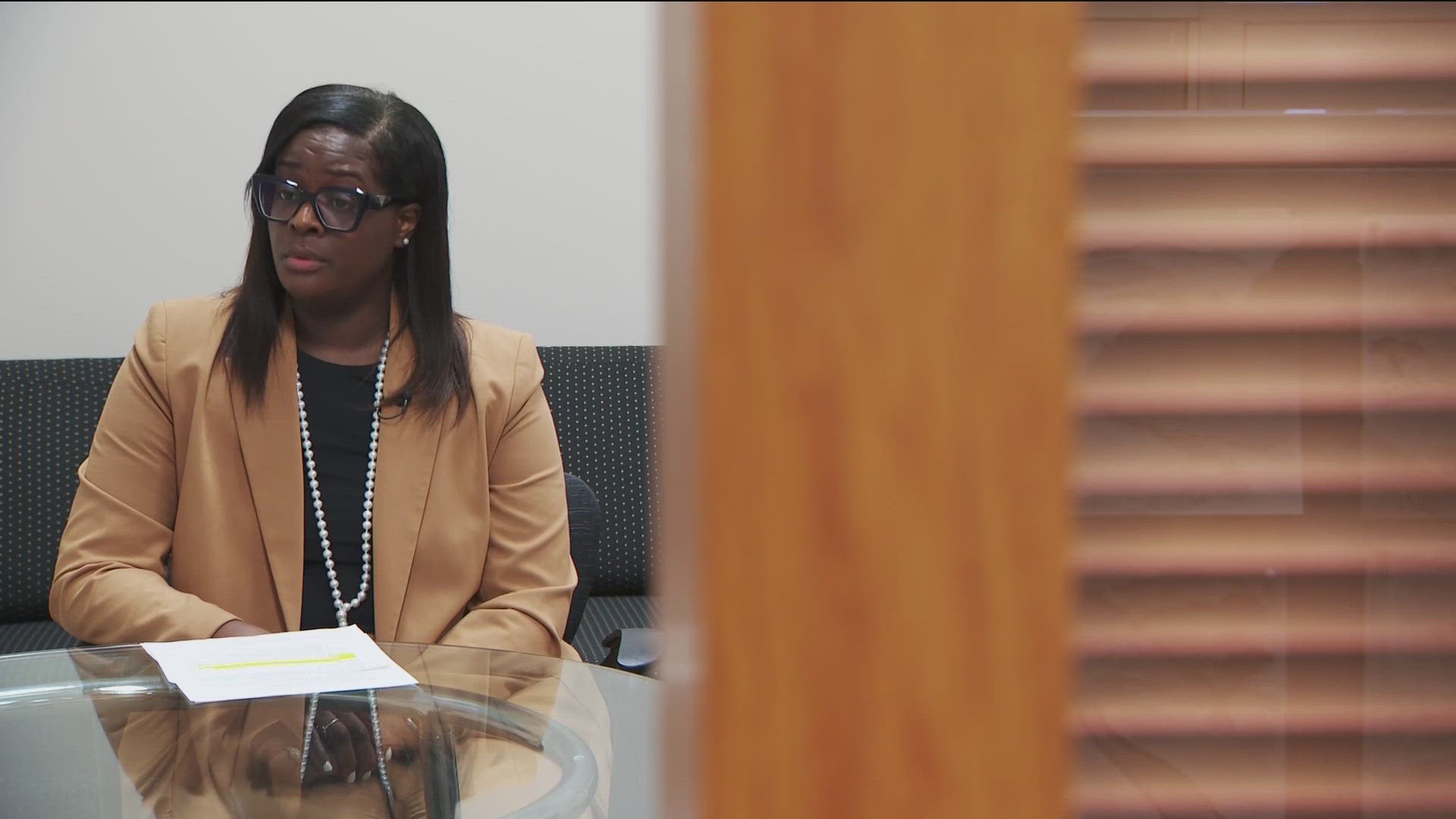MINNEAPOLIS — This week we learned that Minneapolis Mayor Jacob Frey is proposing raising property taxes by 8%, in part, to pay for the historic wage increase in the latest police contract.
The city council approved the contract in July, a month after the police union did.
The nearly 22% raise over the three year deal will make officers some of the highest paid in the state.
The process took nine months and negotiations, usually of any kind, are private by law. But in her first interview with the press, the city's lead negotiator, Rasheda Deloney, is sharing what exactly had to give for both parties to come to an agreement.
"My goal is to ensure a fair and equitable contract for all of our union partners despite feelings and the pressures and such," said Deloney, who has been on the job now for three years.
She called the process, and much of what's included in the new contract, historic - including having some mediation sessions open to the public for the first time in the city's history.
"That definitely made it different," said Deloney. "Traditionally negotiations are conducted in a closed space, not really to hide anything, but that's just traditional ways and the city, this time around, really opened the curtains if you will, to offer the public an opportunity to engage."
Deloney says the wage increase will also help retain and recruit officers as the department said it was last down about 200 of them.
"Wages are the fundamental topic of any contract," said Deloney. "We knew going in that economics would be a priority and we definitely dedicated a lot of time and resources to achieve that goal."
The mayor's proposed tax increase would equal about another $200 for Minneapolis homeowners. When KARE 11's Jennifer Hoff asked Deloney if that was worth it, she said yes.
"We bargain in good faith, with the understanding that we are fiscally responsible, or at least thoughtful of what those impacts down the road would be," said Deloney.
Deloney also said the city and police union had to particularly compromise on what's called a zipper clause - taking any external agreements and putting them all in the contract. Now, any of them that outside it are considered null and void.
While Deloney may be known for her work on the police contract, she's actively negotiating 10 others within the city yet this year. That includes with unions representing construction foreman, supervisors and the 911 unit.
And already next fall, bargaining will begin again on another police contract.
"This has been my world for almost two decades, so it definitely takes some patience," said Deloney. "Just taking a breather and understanding that everything will work itself out."
The contract also expands the chief's powers and some oversight measures, including keeping an officer on leave longer during an internal investigation. But it still drew a lot of concerns from council members and community members who say there aren't enough tangible reforms.
Eventually the negotiations did have to involve state mediators.

